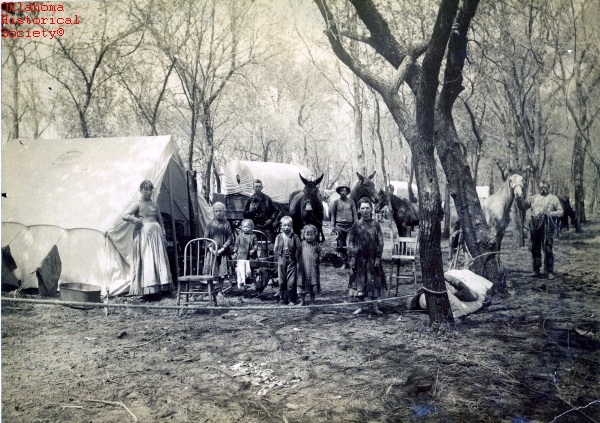 I confess I’ve always had a disproportionate revulsion and hostility towards people who cut in line, take up multiple parking places, or otherwise demonstrate an utter lack of interest in the possibility there are other people in the world but themselves.
I confess I’ve always had a disproportionate revulsion and hostility towards people who cut in line, take up multiple parking places, or otherwise demonstrate an utter lack of interest in the possibility there are other people in the world but themselves.
My home was robbed when I was a kid. More upsetting than the stuff I lost was the inexpressible sense of violation, and marginalization. How could one person do that to another, consciously and willingly?
Lie to the IRS, abuse your meds, cheat on your man-toys if you must – but to take from another human being who’s no better off than yourself and to be OK with that…? I couldn’t get it.
Sooners weren’t stealing from the Amerindians – not by this point. They weren’t simply fooling the government, or the soldiers stationed there. They were decreeing through their actions that the wants and needs of those lined up for one last chance at the American Dream weren’t nearly as important as their avarice. Their presumption.
To hell with those families, those hopes – those rule-abiding suckers.
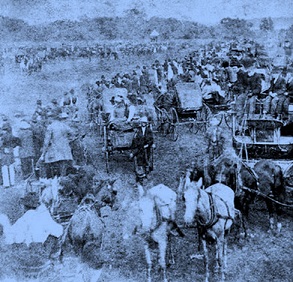 Perhaps we can excuse, if not entirely justify, the actions of desperate individuals willing to take big chances – to hide in the bushes or sneak past armed defenders. But what we so often gloss over in Oklahoma History is how many Sooners didn’t have to sneak in at all. They were there with permission. By orders, actually.
Perhaps we can excuse, if not entirely justify, the actions of desperate individuals willing to take big chances – to hide in the bushes or sneak past armed defenders. But what we so often gloss over in Oklahoma History is how many Sooners didn’t have to sneak in at all. They were there with permission. By orders, actually.
They were there being paid with the tax dollars of the fools waiting patiently for the starting gun.
From the New York Times, only a few days after the first Oklahoma Land Run:
Six or seven thousand people are huddled together in tents or shanties… enduring privations which assuredly had no part in the programme mapped out previous to the invasion. Today not fewer than one thousand men departed with disgust plainly stamped on their faces…
The cause of this revulsion of feeling on the part of men who a few weeks ago were singing the praises of the projected town, is the action of the United States Marshals in appointing as Deputies many real estate sharks and others who went to Guthrie solely to secure town lots in advance of the great body detained on the border by order of the Government. These so-called deputies appeared in Guthrie and Oklahoma City Saturday, and had the former site surveyed and selected before 10 o’clock Monday morning…
When the hour of 12 arrived Monday the deputies go in their work so effectually that when the trainload of boomers came in from the north some time later, all the best lots had been claimed…
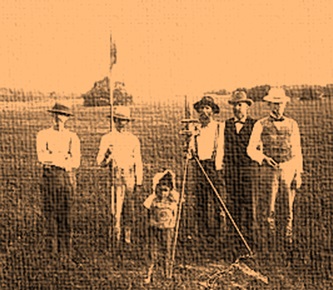 Soldiers, land-surveyors, law enforcement – anyone with the right connections to get themselves into the territory ahead of time and scope out the best land. Often they’d announce their resignations minutes before noon, presumably in anticipation of future accusations they’d violated the terms of their employment.
Soldiers, land-surveyors, law enforcement – anyone with the right connections to get themselves into the territory ahead of time and scope out the best land. Often they’d announce their resignations minutes before noon, presumably in anticipation of future accusations they’d violated the terms of their employment.
Others didn’t bother. From Harper’s Weekly, May 18, 1889:
It was an eager and an exuberantly joyful crowd that rode slowly into Guthrie at twenty minutes past one o’clock on that perfect April afternoon. Men who had expected to lay out the town site were grievously disappointed at the first glimpse of their proposed scene of operations. The slope east of the railway at Guthrie station was dotted white with tents and sprinkled thick with men running about in all directions.
“We’re done for,” said a town-site speculator, in dismay. “Someone has gone in ahead of us and laid out the town.”
“Never mind that,” shouted another town-site speculator, “but make a rush and get what you can.”
Hardly had the train slackened its speed when the impatient boomers began to leap from the cars and run up the slope. Men jumped from the roofs of the moving cars at the risk of their lives. Some were so stunned by the fall that they could not get up for some minutes. The coaches were so crowded that many men were compelled to squeeze through the windows in order to get a fair start at the head of the crowd…
I ran with the first of the crowd to get a good point of view from which to see the rush. When I had time to look about me I found that I was standing beside a tent, near which a man was leisurely chopping holes in the sod with a new axe.
“Where did you come from, that you have already pitched your tent?” I asked.
“Oh, I was here,” said he.
“How was that?”
“Why, I was a deputy United States marshal.”
“Did you resign?”
“No; I’m a deputy still.”
“But it is not legal for a deputy United States marshal, or any one in the employ of the government, to take up a town lot in this manner.”
“That may all be, stranger; but I’ve got two lots here, just the same; and about fifty other deputies have got lots in the same way. In fact, the deputy-marshals laid out the town.”
Legal recourse was widely sought, of course, but those with the resources to pursue extended legal actions weren’t usually hanging out in the middle of nowhere running for land. Most Sooners kept their plots – especially those who’d acted collectively. How do you kick out an entire town, community leaders and all? And guess what…
That sort of advantage is self-perpetuating.
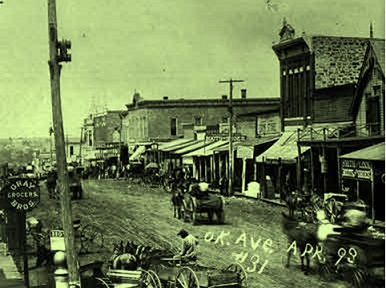 Sooners were far more likely to farm successfully, having started with better farms. They were generally more prosperous as merchants or other businessmen, having established ideal locations and opened for business while others were still gathering basic supplies. They’d produce the healthiest children who’d receive the best educations and have the best opportunities due to family connections and social savvy.
Sooners were far more likely to farm successfully, having started with better farms. They were generally more prosperous as merchants or other businessmen, having established ideal locations and opened for business while others were still gathering basic supplies. They’d produce the healthiest children who’d receive the best educations and have the best opportunities due to family connections and social savvy.
Some of this could simply reflect ‘grit’ – whatever else Sooners were, they weren’t lazy. Maybe the same drive that led them to cheat helped in legitimate endeavors as well. It would be silly to reduce the next century of development to who started where.
But it doesn’t take long before yesterday’s plunder is today’s hard-won prize. How many days passed before Sooner families began to credit themselves with the pluck and determination to make the run successfully? To disparage those less successful, who had THE SAME CHANCE and couldn’t cut it – slinking away in frustration and failure?
I mean, hey we were all part of the same run! Everyone had their shot. Are you saying I didn’t work for what I have?
I’m not interested in going back and wringing our lil’ hands and hearts over the sins of our forebearers. Land was a big deal, and people did worse for it than the things described here. Move on, people.
But that doesn’t mean we have to glorify it, or reframe it as something of which we should be particularly proud. I don’t see many states excited about labeling themselves the ‘Overseers’, the ‘Soiled Doves’, or the ‘Unrepentant Confederates’.
Actually, I take back that last one. They actually kinda do. But you get my point.
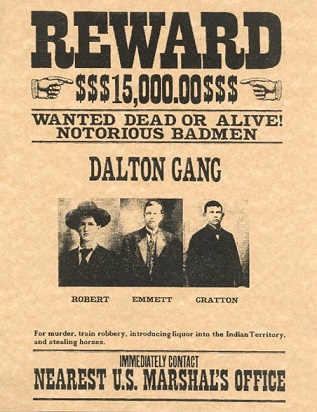 We may express periodic ambivalence towards Pretty Boy Floyd or the Daltons, but they at least robbed and killed those representing the system – the powerful – ‘the man’. Sooners robbed the commonest of common men, and did so just as he was risking everything to improve his condition and claim his small slice of the American Dream.
We may express periodic ambivalence towards Pretty Boy Floyd or the Daltons, but they at least robbed and killed those representing the system – the powerful – ‘the man’. Sooners robbed the commonest of common men, and did so just as he was risking everything to improve his condition and claim his small slice of the American Dream.
It’s not a bad reflection of larger issues in our national past and the much more significant advantages gained by some as a result. As with the Sooners, we would do well to periodically reconsider who and what we glorify in our own past – not to deny it or rewrite it, but to help us maintain clarity and honesty about ourselves.
I’ll pass on the perpetual lamenting and retroactive accusations. It’s not always helpful, and so easily turns sour. A little perspective and confession, however…
Well, they wouldn’t hurt.
RELATED POST: Boomers & Sooners, Part One ~ Last Call Land-Lovers
RELATED POST: Boomers & Sooners, Part Two ~ An Editorial and a Carpenter
RELATED POST: Boomers & Sooners, Part Three ~ Who’s Your Daddy? Why, It’s David L. Payne!
RELATED POST: Boomers & Sooners, Part Four ~ Dirty Stinkin’ No Good Sons Of…

 Not all Sooners were such loveable characters, however. From the New York Times, April 25th, 1889:
Not all Sooners were such loveable characters, however. From the New York Times, April 25th, 1889: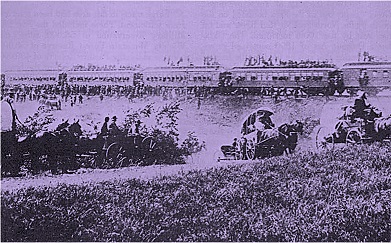 It was later announced that these lands would be opened up through a ‘Land Run’ – an approach which certainly reduced paperwork and eliminated the traditional 5-year waiting period before taking title to a section of this last remnant of American frontier, now being referred to more and more often as “Oklahoma.” It was a weird system even for the times – times far more interesting than usually credited.
It was later announced that these lands would be opened up through a ‘Land Run’ – an approach which certainly reduced paperwork and eliminated the traditional 5-year waiting period before taking title to a section of this last remnant of American frontier, now being referred to more and more often as “Oklahoma.” It was a weird system even for the times – times far more interesting than usually credited.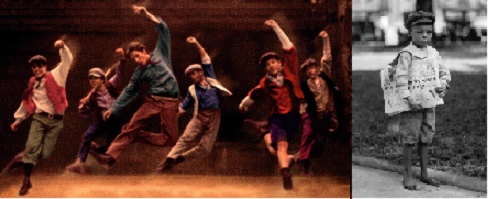 People were reading Kate Chopin, H.G. Wells, Bram Stoker, and Oscar Wilde, while Arthur Conan Doyle introduced a new character named “Sherlock Holmes.” Those kids from Newsies, led by a young Bruce Wayne, were doing that thing they wanted the world to know, although it’s unclear whether they used the same choreography as in the movie. L. Frank Baum was writing The Wonderful Wizard of Oz so that schoolchildren a century later could discuss bimetallism without losing consciousness, and those guys who kinda invented flying machines just prior to the Wright Brothers were crashing them in various interesting ways as part of their efforts to claim the skies.
People were reading Kate Chopin, H.G. Wells, Bram Stoker, and Oscar Wilde, while Arthur Conan Doyle introduced a new character named “Sherlock Holmes.” Those kids from Newsies, led by a young Bruce Wayne, were doing that thing they wanted the world to know, although it’s unclear whether they used the same choreography as in the movie. L. Frank Baum was writing The Wonderful Wizard of Oz so that schoolchildren a century later could discuss bimetallism without losing consciousness, and those guys who kinda invented flying machines just prior to the Wright Brothers were crashing them in various interesting ways as part of their efforts to claim the skies.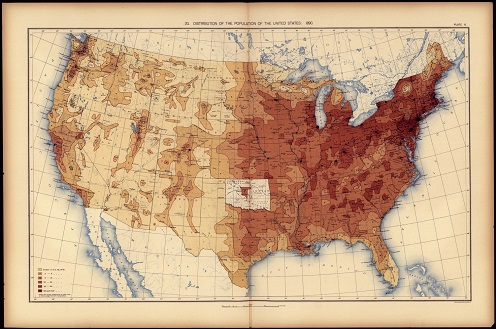 The census was a year away, but the sense that the nation was ‘filling up’ and land was ‘running out’ was hardly news to Boomers and others looking for those last few opportunities in the west. The future state of Oklahoma, once so disparaged that the Natives were placed there by force so white guys could have the GOOD land, was looking better and better as other options fell away. Necessity, it seems, was the mother of invasion.
The census was a year away, but the sense that the nation was ‘filling up’ and land was ‘running out’ was hardly news to Boomers and others looking for those last few opportunities in the west. The future state of Oklahoma, once so disparaged that the Natives were placed there by force so white guys could have the GOOD land, was looking better and better as other options fell away. Necessity, it seems, was the mother of invasion.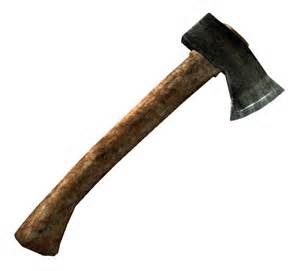 “Rather got ahead of ye, didn’t I, boys?” he asked, when they came up.
“Rather got ahead of ye, didn’t I, boys?” he asked, when they came up.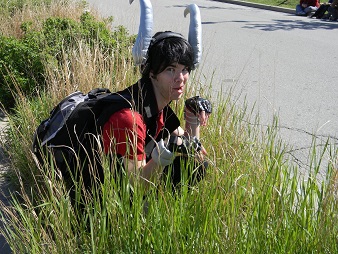 Still, even this we might sweep aside as typical of the times. We must not judge the past by the standards of our far-more-convenient present. Perhaps hatchet lad, and Grant – who went on to shoot the bastard – may be excused for their Lord of the Flies behavior.
Still, even this we might sweep aside as typical of the times. We must not judge the past by the standards of our far-more-convenient present. Perhaps hatchet lad, and Grant – who went on to shoot the bastard – may be excused for their Lord of the Flies behavior.
 “I’m not talking anymore! I can’t see over there! I’m being good! Just one more chance and if I mess up, you can move me! Please?!?!?? Pleeeeaaaaassssseeeee??!?!?!!!???”
“I’m not talking anymore! I can’t see over there! I’m being good! Just one more chance and if I mess up, you can move me! Please?!?!?? Pleeeeaaaaassssseeeee??!?!?!!!???”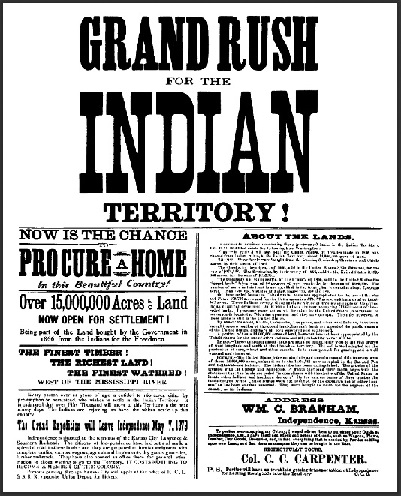 The issue is not bold defiance or soft incompetence. It’s a calculated risk on the part of the student – who knows you. She’s betting you won’t go nuclear on her – no referrals, no yelling, no hurling heavy objects. She’s ready at any point to back down and comply – at least until your attention has shifted. She’s also sure you have things you’d rather be doing than power struggle with her, and that you don’t actually dislike her – even if she is making you crazy at the moment.
The issue is not bold defiance or soft incompetence. It’s a calculated risk on the part of the student – who knows you. She’s betting you won’t go nuclear on her – no referrals, no yelling, no hurling heavy objects. She’s ready at any point to back down and comply – at least until your attention has shifted. She’s also sure you have things you’d rather be doing than power struggle with her, and that you don’t actually dislike her – even if she is making you crazy at the moment. 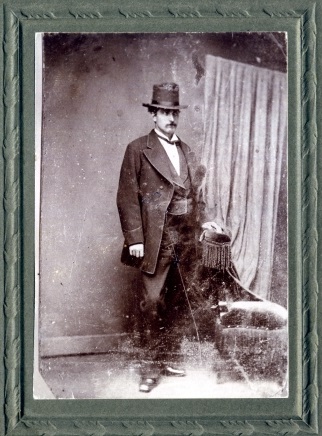 He had a common-law wife and a son who was, by definition, “out-of-wedlock.” He volunteered to fight for the Union as soon as the war broke out, then stayed in the army to help ‘civilize’ the Great Plains after. He fought under Custer and knew Kit Carson and Wild Bill Hickok.
He had a common-law wife and a son who was, by definition, “out-of-wedlock.” He volunteered to fight for the Union as soon as the war broke out, then stayed in the army to help ‘civilize’ the Great Plains after. He fought under Custer and knew Kit Carson and Wild Bill Hickok. 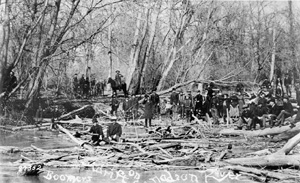 He was removed by the U.S. Army, but he went in again. He was removed again, then went in again. Removed, return, removed, return, removed, return, removed…
He was removed by the U.S. Army, but he went in again. He was removed again, then went in again. Removed, return, removed, return, removed, return, removed…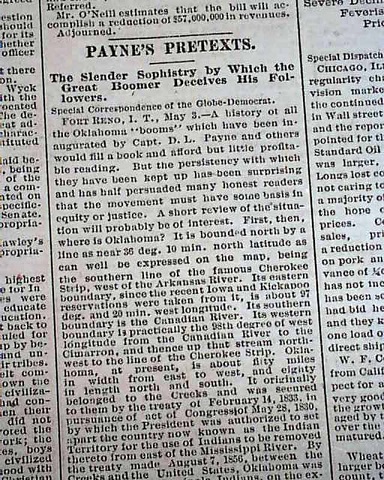 He KNEW the U.S. Army didn’t actually want to shoot anyone over this land. He was betting they wouldn’t even actually imprison him – or anyone else – for any length of time. Not for THIS.
He KNEW the U.S. Army didn’t actually want to shoot anyone over this land. He was betting they wouldn’t even actually imprison him – or anyone else – for any length of time. Not for THIS. 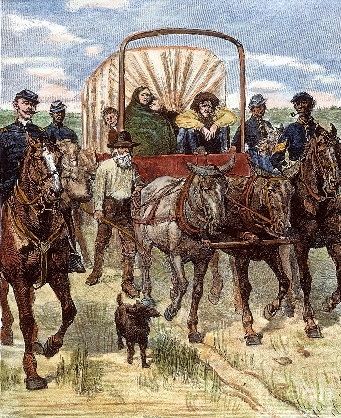 And then he returned.
And then he returned.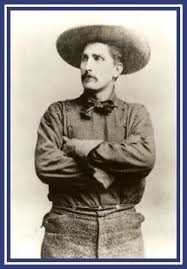 Payne believed.
Payne believed.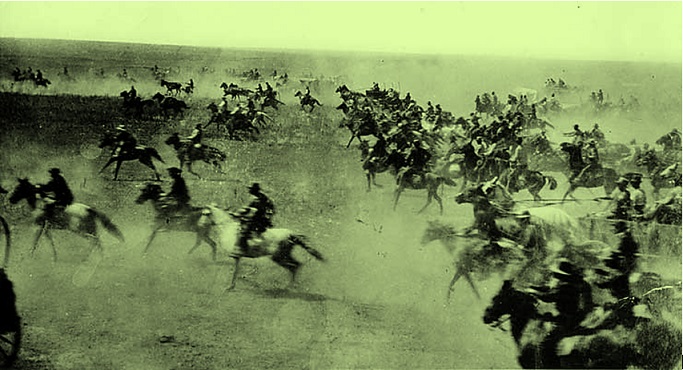
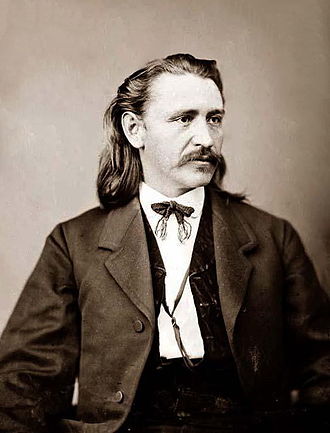 Elias C. Boudinot was the son of Elias “I Don’t Have A Middle Name” Boudinot, who’d helped to establish and edit the first Amerindian newspaper, the Cherokee Phoenix. Remember Sequoyah and his syllabary? Boudinot was the guy who turned it into movable type so it could be printed easily.
Elias C. Boudinot was the son of Elias “I Don’t Have A Middle Name” Boudinot, who’d helped to establish and edit the first Amerindian newspaper, the Cherokee Phoenix. Remember Sequoyah and his syllabary? Boudinot was the guy who turned it into movable type so it could be printed easily.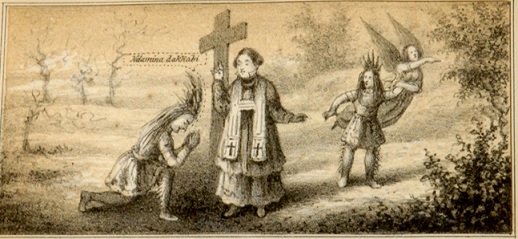 The rest of the younger Boudinot’s upbringing took place in Connecticut with his mother’s family – a well-off people of some status who supported Christian missionaries among the Cherokee. These weren’t the yelling and shaking godly fists types of missionaries, or the Spanish Priests variety who thought enslavement was good for the sinful savage. These were the kind of missionaries who tried to make themselves legitimately useful among those to whom they were missioning, but who also hoped to eventually change a few key traditions and values – like, say… killing those who sign away tribal lands.
The rest of the younger Boudinot’s upbringing took place in Connecticut with his mother’s family – a well-off people of some status who supported Christian missionaries among the Cherokee. These weren’t the yelling and shaking godly fists types of missionaries, or the Spanish Priests variety who thought enslavement was good for the sinful savage. These were the kind of missionaries who tried to make themselves legitimately useful among those to whom they were missioning, but who also hoped to eventually change a few key traditions and values – like, say… killing those who sign away tribal lands.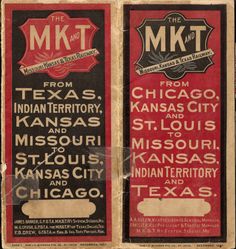 Elias C. Boudinot became in many ways the worst version of his father’s progressive vision – a political figure who worked in both Indian Territory (I.T.) and Washington, D.C., often more in support of railroads and national expansion than anything traditionally Cherokee. The excerpts below are from a letter he wrote which created quite a stir after its publication in 1879.
Elias C. Boudinot became in many ways the worst version of his father’s progressive vision – a political figure who worked in both Indian Territory (I.T.) and Washington, D.C., often more in support of railroads and national expansion than anything traditionally Cherokee. The excerpts below are from a letter he wrote which created quite a stir after its publication in 1879.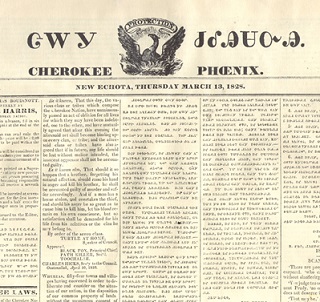 The Reconstruction Treaties made with the various ‘Civilized Tribes’ after the Civil War include ‘freedmen’ explicitly and persistently. This choice of words was presumably intended to reinforce the postbellum reality that former slaves of the various tribes were now free, and under these treaties were to receive full rights and privileges of tribal citizenship. In this case, this meant access to land under the same terms as any other member of their respective tribes.
The Reconstruction Treaties made with the various ‘Civilized Tribes’ after the Civil War include ‘freedmen’ explicitly and persistently. This choice of words was presumably intended to reinforce the postbellum reality that former slaves of the various tribes were now free, and under these treaties were to receive full rights and privileges of tribal citizenship. In this case, this meant access to land under the same terms as any other member of their respective tribes. 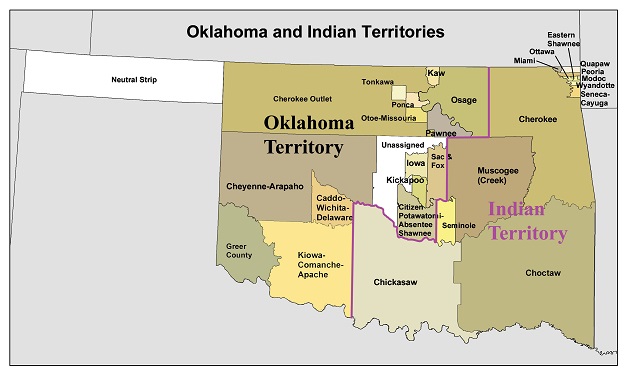 While the Massacre at Wounded Knee (which effectively ended Amerindian resistance on the Great Plains) was a decade away, Boudinot was correct that the vast majority of those who were to be ‘relocated’ had already been moved. This ‘extra land’ in Indian Territory was unlikely to be assigned anytime soon.
While the Massacre at Wounded Knee (which effectively ended Amerindian resistance on the Great Plains) was a decade away, Boudinot was correct that the vast majority of those who were to be ‘relocated’ had already been moved. This ‘extra land’ in Indian Territory was unlikely to be assigned anytime soon.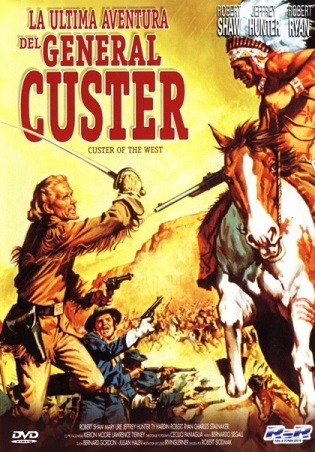 Enter Charles C. Carpenter, a former Civil War… er, ‘participant’ in various capacities, both official and not. Apparently a fan of the recently deceased George Armstrong Custer, Carpenter sported long golden curls and buckskins. A commanding officer wrote of him that “he adds great shrewdness to the reckless courage which he undoubtedly possesses.”
Enter Charles C. Carpenter, a former Civil War… er, ‘participant’ in various capacities, both official and not. Apparently a fan of the recently deceased George Armstrong Custer, Carpenter sported long golden curls and buckskins. A commanding officer wrote of him that “he adds great shrewdness to the reckless courage which he undoubtedly possesses.”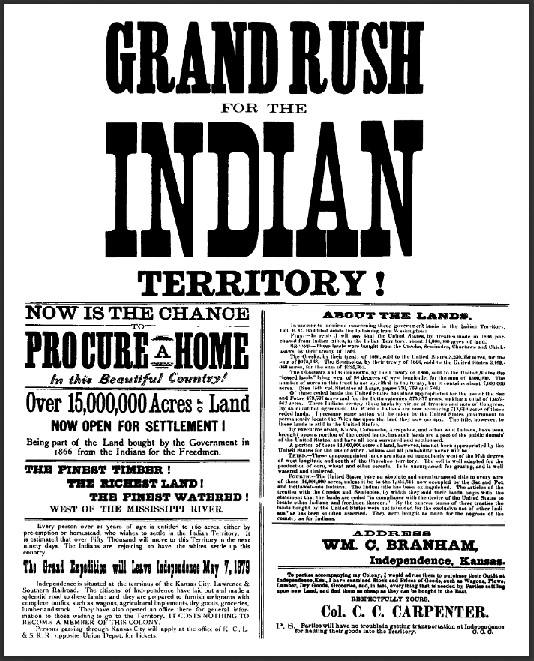 He was persuasive enough, though, to organize at least one big ‘boomer’ push into Indian Territory, where the limits of the government’s determination would be tested by a few brave souls willing to rough it and even risk trouble with the law to grab their little piece of the American Dream. Or at least, that was how they framed themselves.
He was persuasive enough, though, to organize at least one big ‘boomer’ push into Indian Territory, where the limits of the government’s determination would be tested by a few brave souls willing to rough it and even risk trouble with the law to grab their little piece of the American Dream. Or at least, that was how they framed themselves. 
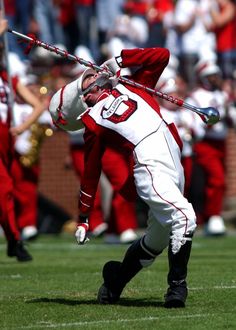 If you’re from Oklahoma, or if you follow college football, or if you’ve ever been to OU, or if you have a pulse, you’ve probably more than once been subjected to the Hyper-Sousa-ish throb of the University of Oklahoma’s “Boomer Sooner.” If you’re truly dyed deep in just the right shade of maroon, you may even know the words:
If you’re from Oklahoma, or if you follow college football, or if you’ve ever been to OU, or if you have a pulse, you’ve probably more than once been subjected to the Hyper-Sousa-ish throb of the University of Oklahoma’s “Boomer Sooner.” If you’re truly dyed deep in just the right shade of maroon, you may even know the words: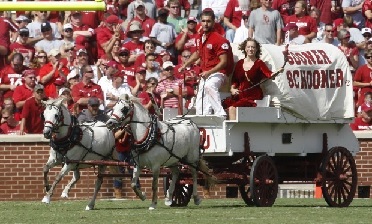 Those aren’t ALL of the words, of course – that would be silly. The second verse takes the theme to new depths:
Those aren’t ALL of the words, of course – that would be silly. The second verse takes the theme to new depths: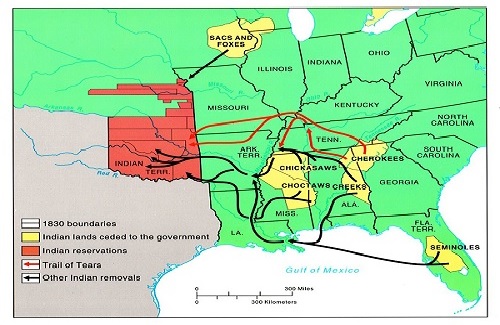
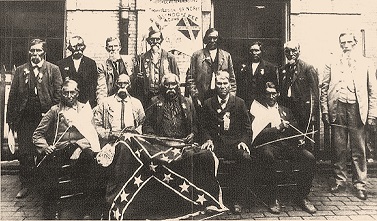 Only staying out of the conflict wasn’t as easy as they’d hoped. When pushed, many sympathized with the South, especially after Confederates promised them a better deal should they prevail. Some remained ‘loyal’ to the North, and a few went to great lengths to resist involvement altogether. Eventually, however, a majority of the 5CT were Confederates, including the colorful Stand Watie – the last Confederate General to officially surrender at the end of the war.
Only staying out of the conflict wasn’t as easy as they’d hoped. When pushed, many sympathized with the South, especially after Confederates promised them a better deal should they prevail. Some remained ‘loyal’ to the North, and a few went to great lengths to resist involvement altogether. Eventually, however, a majority of the 5CT were Confederates, including the colorful Stand Watie – the last Confederate General to officially surrender at the end of the war.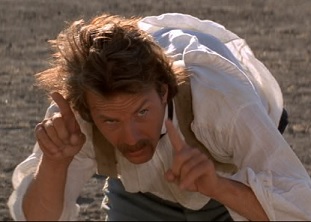 That made room for the U.S. to begin packing in other tribes, this time mostly from the Great Plains. The Cheyenne, Arapaho, Wichita, Kickapoo, Pawnee, Apache, Comanche… and of course the Lakota Sioux. Remember Dances With Wolves? Yeah, this was THAT time period. Tatanka.
That made room for the U.S. to begin packing in other tribes, this time mostly from the Great Plains. The Cheyenne, Arapaho, Wichita, Kickapoo, Pawnee, Apache, Comanche… and of course the Lakota Sioux. Remember Dances With Wolves? Yeah, this was THAT time period. Tatanka.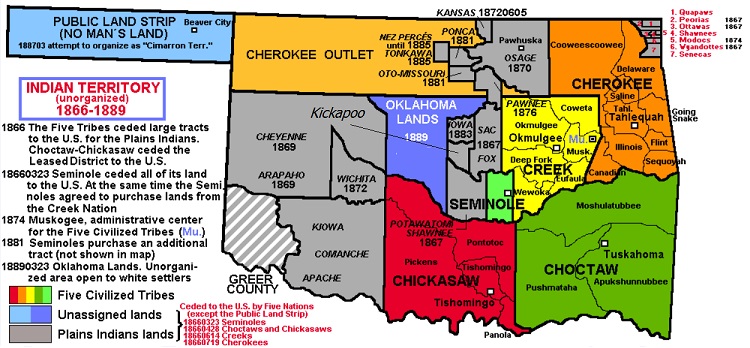
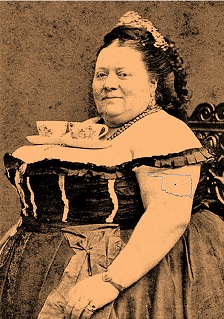 Gentlemen, meet Oklahoma – or, part of her, anyway. That ‘unassigned’ section there in the middle. I like this one allot (see what I did there?) but you don’t wanna end up holding her panhandle, I assure you.
Gentlemen, meet Oklahoma – or, part of her, anyway. That ‘unassigned’ section there in the middle. I like this one allot (see what I did there?) but you don’t wanna end up holding her panhandle, I assure you.